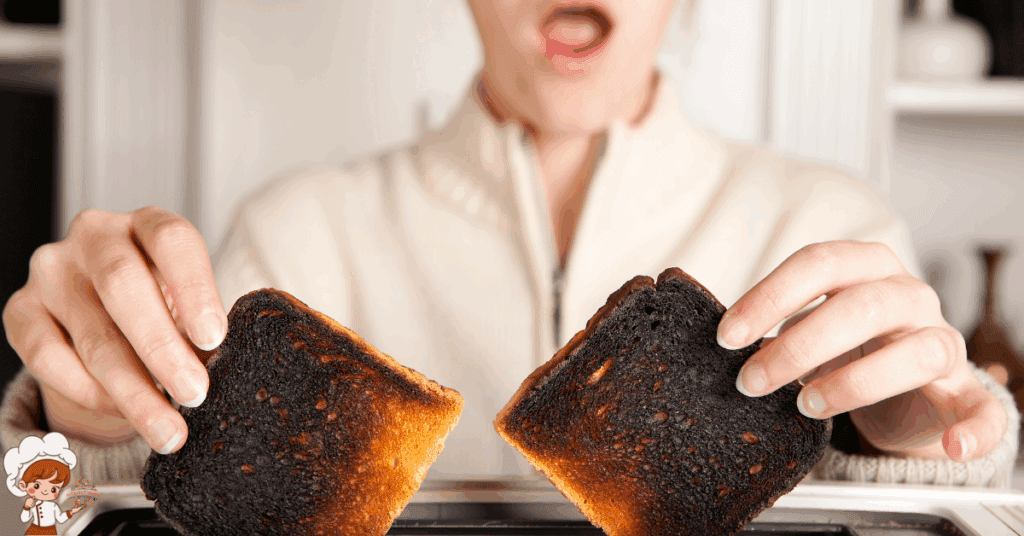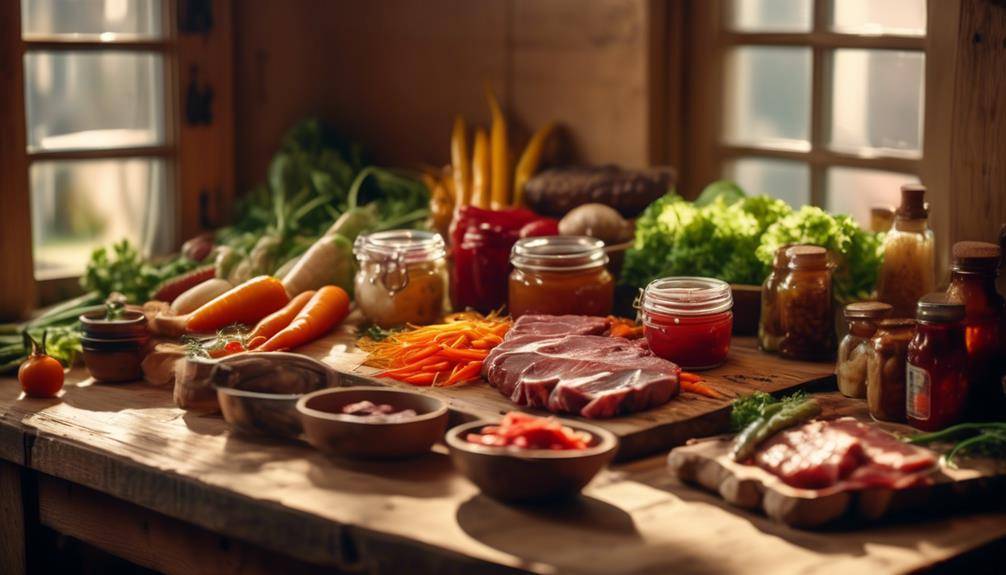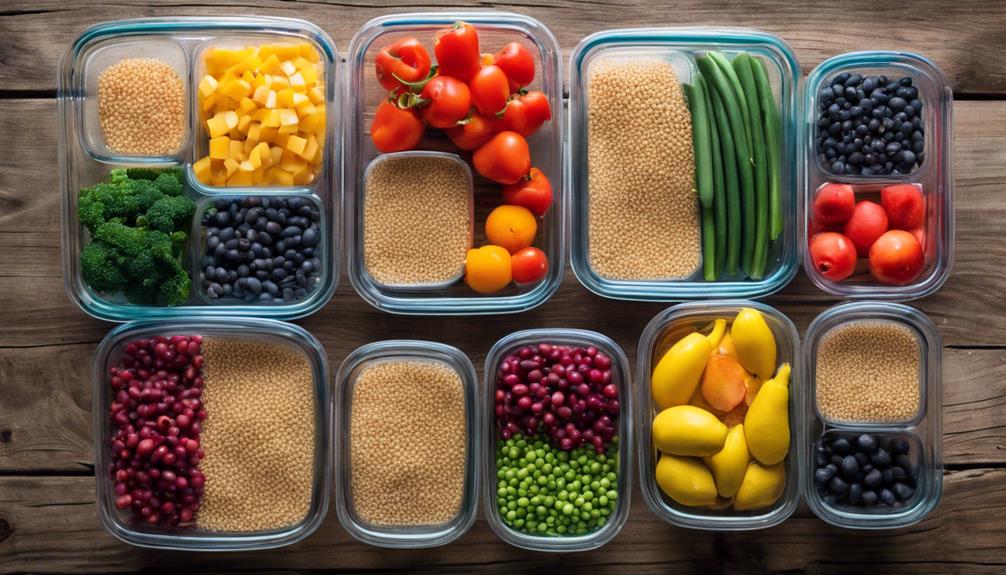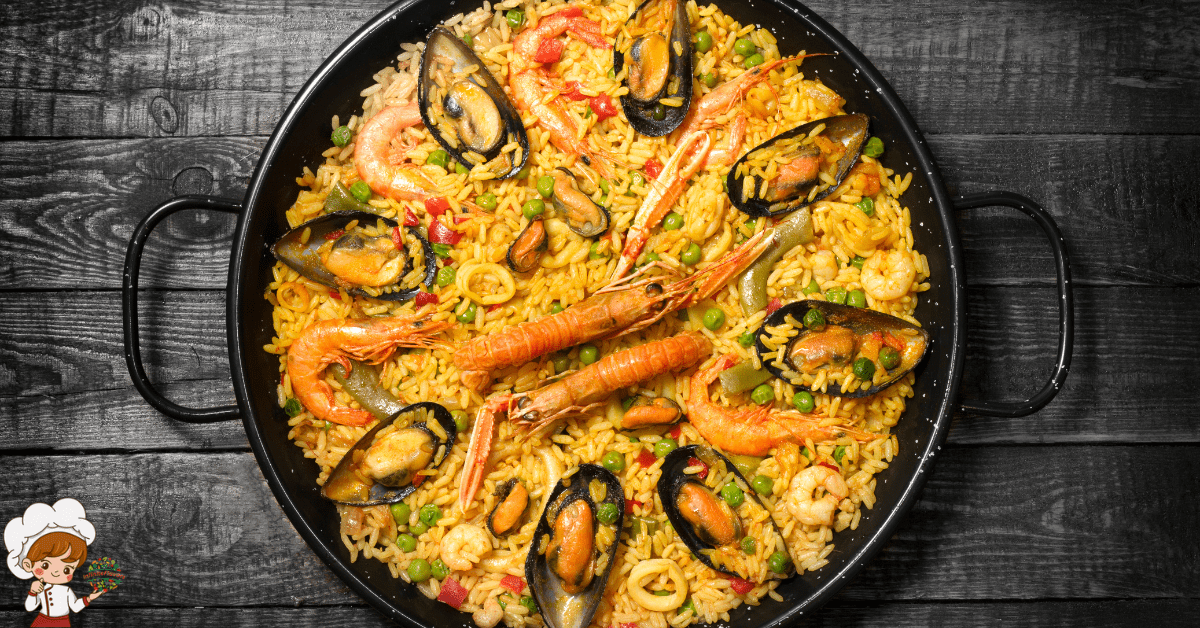Why Are Basic Cooking Skills Getting Worse? Here’s the Truth

Why Are Basic Cooking Skills Getting Worse; Have you ever wondered why basic cooking skills don’t seem to be improving? Is it possible that there are certain factors hindering our progress in the kitchen? In this short piece, we will delve into some possible reasons behind this phenomenon. It could be that lack of time and convenience play a significant role, as people often opt for pre-packaged foods instead of cooking from scratch.
Additionally, limited exposure to cooking at home may contribute to the lack of improvement in basic cooking skills. Fear of failure and lack of confidence could also be holding people back from experimenting and learning in the kitchen. Lastly, insufficient education and training might be a key factor in why basic cooking skills aren’t advancing as we would hope. Let’s explore these theories further to gain a better understanding.
Lack of Time and Convenience
One reason why your basic cooking skills aren’t improving is because you don’t have enough time and find convenience more appealing. In today’s fast-paced world, juggling work, family, and social commitments can leave little room for spending hours in the kitchen. That’s where meal delivery services come in, offering a solution to your busy schedule while still allowing you to enjoy home-cooked meals.
With meal delivery services, you can say goodbye to the endless grocery store runs and the hassle of meal planning. These services provide you with pre-portioned ingredients and step-by-step recipes, making it easy for even the most novice cook to whip up a delicious meal in no time. They take the guesswork out of cooking, saving you precious minutes that can be better spent on other important tasks.
Busy schedules often lead to unhealthy eating habits, with takeout and fast food becoming the go-to options. By opting for meal delivery services, you can break this cycle and take control of your nutrition. These services offer a variety of menu options, catering to different dietary preferences and restrictions. Whether you’re a vegetarian, following a gluten-free diet, or simply looking to eat healthier, there’s a meal delivery service out there that can meet your needs.
Not only do meal delivery services save you time and promote healthier eating habits, but they also provide an opportunity to learn new cooking skills. As you follow the provided recipes and prepare meals from scratch, you’ll gradually develop a better understanding of ingredients, flavors, and cooking techniques. This newfound knowledge can then be applied to future cooking endeavors, helping you become a more confident and skilled cook.
Overreliance on Pre-Packaged Foods
Are you relying too heavily on pre-packaged foods? In today’s fast-paced world, it’s easy to fall into the convenience trap of relying on pre-packaged meals and snacks. While these foods may seem like a quick and easy solution to our busy lives, they come with significant nutritional implications and environmental impact.
When we rely on pre-packaged foods, we often sacrifice nutritional quality. These foods are typically high in sodium, added sugars, and unhealthy fats. They are often lacking in essential nutrients such as fiber, vitamins, and minerals. Regular consumption of these foods can contribute to weight gain, high blood pressure, and other diet-related health issues.
Additionally, the environmental impact of pre-packaged foods should not be overlooked. The production, packaging, and transportation of these foods contribute to greenhouse gas emissions, waste generation, and depletion of natural resources. The excessive use of plastic and other non-biodegradable materials in packaging further adds to the environmental burden.
To break free from the overreliance on pre-packaged foods, it’s important to prioritize cooking at home and meal planning. By preparing meals from scratch, you have control over the ingredients and can ensure a healthier and more balanced diet. It may require some initial effort and time, but the long-term benefits to your health and the environment make it worthwhile.
Start by incorporating simple and nutritious recipes into your cooking repertoire. Experiment with fresh ingredients, herbs, and spices to enhance the flavors of your meals. Gradually reduce your reliance on pre-packaged foods and make cooking a regular part of your routine.
Limited Exposure to Cooking at Home
To improve basic cooking skills, you need more exposure to cooking at home. Limited exposure to cooking at home can hinder your ability to develop and refine your skills in the kitchen. Here are four reasons why lack of interest and motivation, as well as limited access to fresh ingredients, can contribute to this issue:
- Lack of interest and motivation: If you don’t have a strong desire to cook or find it uninteresting, you’re less likely to take the time to practice and improve your skills. Without the motivation to experiment with different recipes and techniques, your cooking abilities may stagnate.
- Limited access to fresh ingredients: Cooking at home often requires fresh ingredients, but not everyone has easy access to them. Whether it’s due to living in a food desert or relying on convenience stores with limited options, the lack of fresh ingredients can make it challenging to learn and experiment with new recipes.
- Time constraints and busy lifestyles: Many people lead busy lives and find it difficult to make time for cooking at home. Between work, family commitments, and other responsibilities, cooking can take a backseat. Without regular practice, your cooking skills may not improve as quickly as they could.
- Lack of knowledge and confidence: Some individuals may feel intimidated by cooking or lack the necessary knowledge to prepare meals from scratch. This lack of confidence can discourage them from attempting to cook at home, limiting their exposure to new techniques and recipes.
To overcome these challenges and increase your exposure to cooking at home, it’s important to find ways to generate interest and motivation, seek out fresh ingredients through local markets or community-supported agriculture, prioritize time for cooking, and build your knowledge and confidence through cooking classes or online resources. By addressing these factors, you can enhance your cooking skills and enjoy the benefits of delicious homemade meals.
Fear of Failure and Lack of Confidence
Limited exposure to cooking at home can contribute to a fear of failure and lack of confidence in developing basic cooking skills. The fear of judgment and the lack of resources can further exacerbate these feelings. Cooking is a skill that requires practice and experimentation, but without the opportunity to learn and make mistakes, it’s easy to feel overwhelmed and discouraged.
Fear of judgment is a common hurdle for many aspiring home cooks. The thought of preparing a meal for others can be daunting, especially if you’re worried about their opinions and criticism. This fear can lead to a lack of confidence in your abilities and a reluctance to try new recipes or techniques. It’s important to remember that everyone starts somewhere and that making mistakes is a natural part of the learning process. Embracing a growth mindset and viewing failures as opportunities for growth can help overcome this fear and build confidence in the kitchen.
Another factor that contributes to the fear of failure is the lack of resources. Not having access to quality ingredients, proper cooking tools, or reliable recipes can make it difficult to develop basic cooking skills. Without the necessary resources, it’s easy to feel overwhelmed and unsure of where to start. However, it’s important to remember that cooking doesn’t have to be complicated or expensive. There are plenty of budget-friendly recipes and simple techniques that can be mastered with limited resources. Seeking out online tutorials, cooking classes, or even borrowing cookbooks from the library can provide the guidance and inspiration needed to overcome this hurdle.
Insufficient Education and Training
While education and training in cooking are essential for improving basic cooking skills, they are often insufficient or lacking in many individuals. This lack of proper education and training can be attributed to poor accessibility and a shortage of resources. Here are four reasons why education and training in cooking may be insufficient for some people:
- Lack of affordable cooking classes: Many individuals may not have access to affordable cooking classes in their communities. These classes can be expensive and may not be easily accessible to everyone, particularly those with limited financial resources.
- Limited availability of cooking schools: In some areas, there may be a shortage of cooking schools or culinary programs. This lack of options can make it difficult for individuals to pursue formal education or training in cooking.
- Insufficient support in schools: Cooking education is often not prioritized in schools, which means that students may not receive adequate training in this essential life skill. Without proper instruction and practice, individuals may struggle to develop basic cooking skills.
- Lack of resources and equipment: Access to cooking resources such as cookbooks, online tutorials, and kitchen equipment may be limited for some individuals. Without these necessary tools, it can be challenging to learn and improve cooking skills.
In order to address these issues and improve education and training in cooking, it is crucial to increase the accessibility of affordable cooking classes and culinary programs. Additionally, schools should prioritize cooking education and provide students with the necessary resources and support. By addressing these barriers, more individuals will have the opportunity to develop basic cooking skills and improve their overall culinary abilities.
Frequently Asked Questions: Why Are Basic Cooking Skills Getting Worse
How Can I Overcome My Fear of Failure and Lack of Confidence in the Kitchen?
To overcome your fear of failure and build confidence in the kitchen, start by taking small steps. Try easy recipes, practice knife skills, and experiment with new ingredients. Remember, mistakes happen, but that’s how you learn and grow as a cook!
What Are Some Practical Strategies for Increasing My Exposure to Cooking at Home?
To improve your cooking skills, start by increasing your exposure to cooking at home. Try experimenting with different cooking techniques, like sautéing and roasting, and practice regularly to build your confidence in the kitchen.
Are There Any Resources or Classes Available to Help Me Improve My Basic Cooking Skills?
There are many cooking classes and online resources available to help you improve your basic cooking skills. These resources can provide you with expert guidance and tips to enhance your culinary abilities.
What Are Some Healthy and Convenient Alternatives to Pre-Packaged Foods?
Looking for healthy meal prep ideas? Try quick and easy recipes that are convenient alternatives to pre-packaged foods. With a little practice, you’ll be improving your basic cooking skills in no time!
How Can I Find the Time to Cook When I Have a Busy Schedule?
Finding quick and easy recipes is essential when you have a busy schedule. Meal prepping for the week can help you save time and ensure you have healthy, homemade meals ready to go.
Conclusion
So, why aren’t basic cooking skills improving? It seems that lack of time, overreliance on pre-packaged foods, limited exposure to cooking at home, fear of failure, and insufficient education and training are all contributing factors. But fear not! With a little bit of time, effort, and practice, anyone can become a skilled cook. Start by trying out simple recipes, experimenting with flavors, and building your confidence in the kitchen. Before you know it, you’ll be whipping up delicious meals like a pro!








